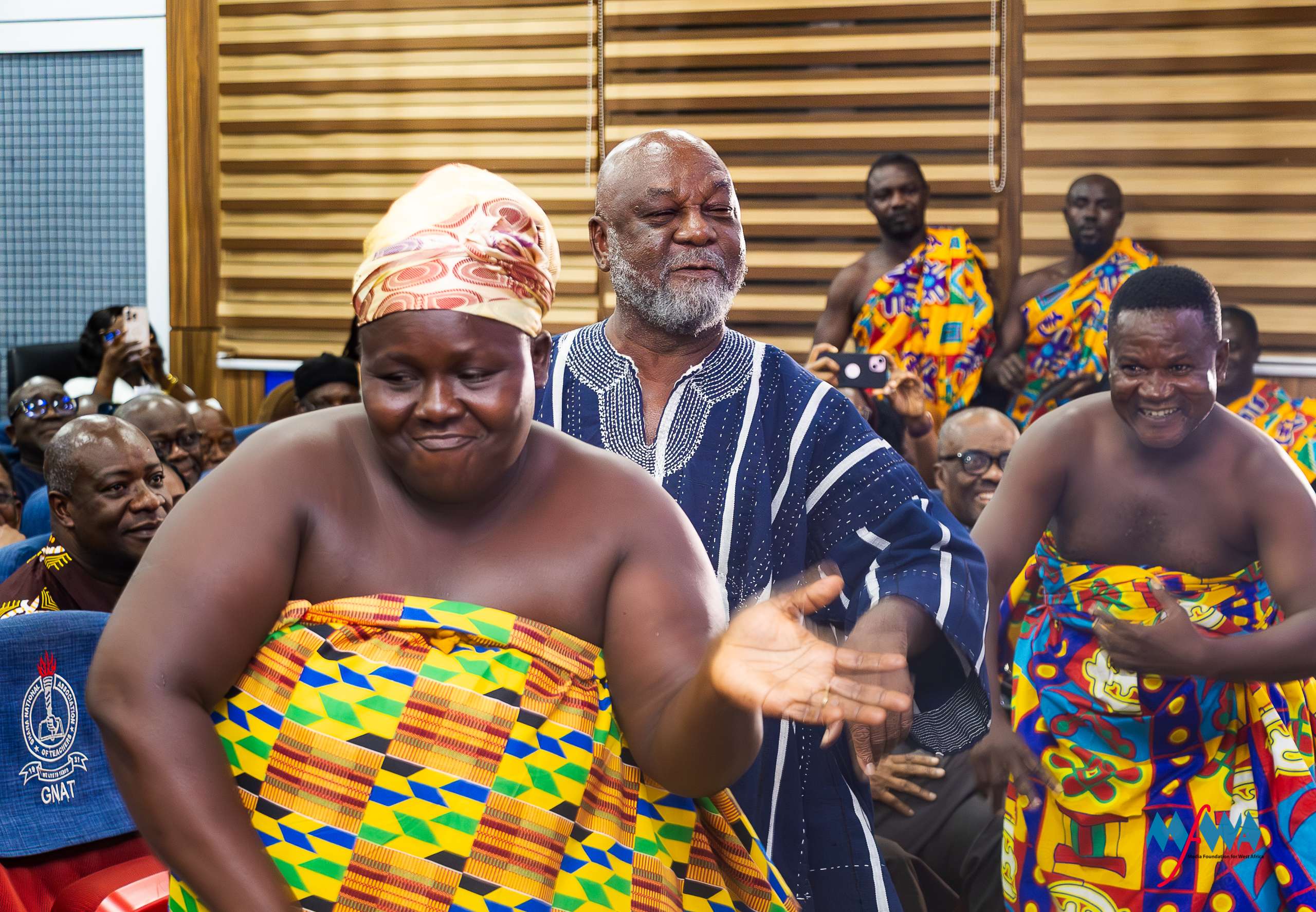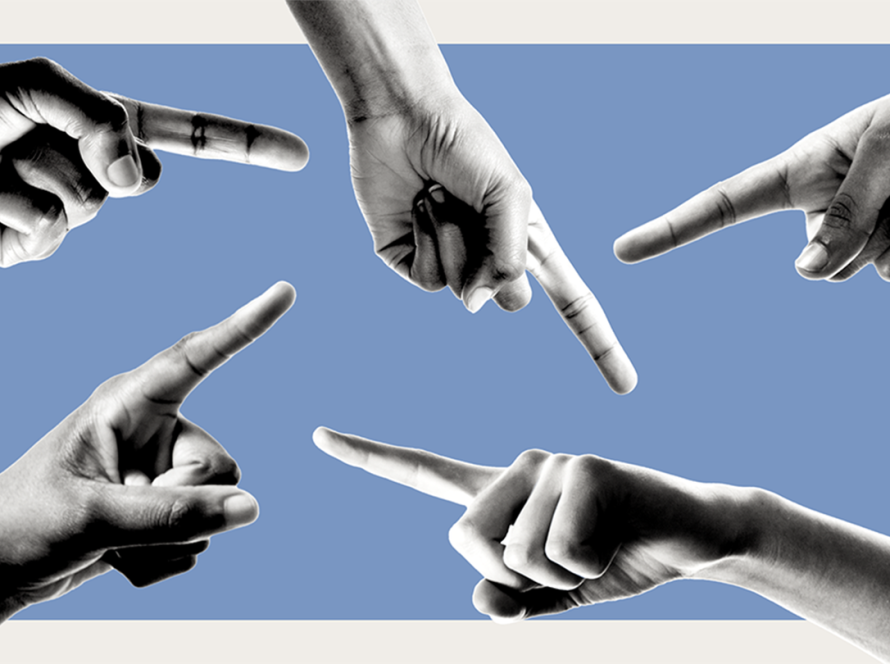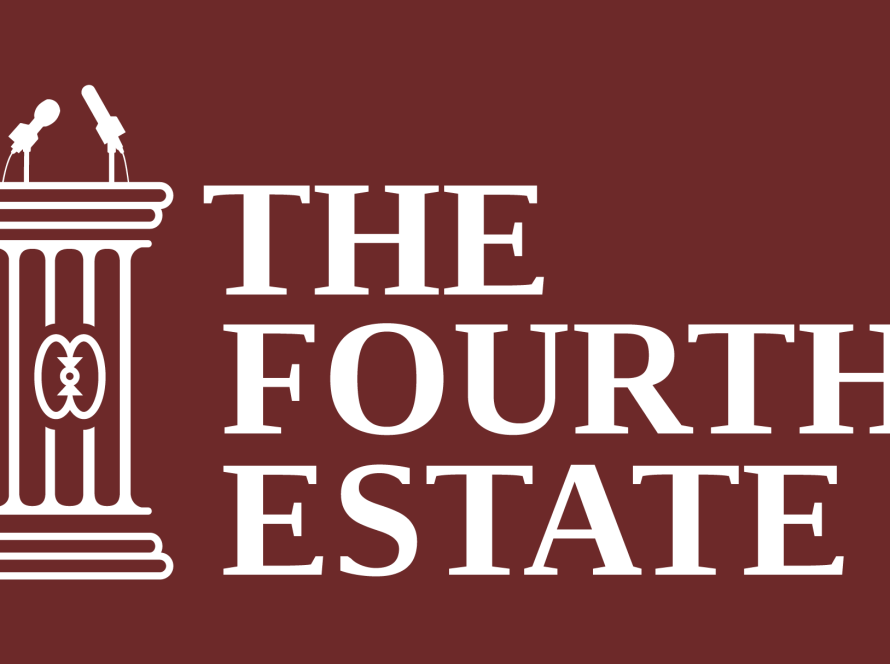On July 16, 2025, Prof. Kwame Karikari, Founder of the Media Foundation for West Africa (MFWA) turned 80, and to celebrate this milestone, the MFWA and the University of Ghana Department of Communication Studies, held a lecture and dinner in his honour.
The two events came off in Ghana’s capital, Accra, where Prof lives and still works, and attracted a galaxy of luminaries in academia, media, civil society, politics, government and royalty across Africa.
Two evenings filled with tributes, the high points included a stock taking of Prof’s life and the revelation that for him, his greatest accomplishment is the founding and running of the MFWA.
The revelation was made by Prof. Takyiwaa Manuh, a Senior Fellow of the Center for Democratic Development (CDD), who was also the Chairperson for the Lecture.
According to her, there are seven high points that define the impactful life that Prof. Karikari has led – the first is his work as a teacher at the University of Ghana where he trained and mentored hundreds of young people into impactful individuals; second, his co-founding of a political movement called the New Democratic Movement (NDM) in 1980; third, his heading of the Ghana Broadcasting Corporation (GBC) as Director General in 1982; fourth, an 18-month imprisonment he suffered after he was later arrested by Rawlings’ military junta and thrown into jail without trial or charge.
According to Prof. Manuh, the fifth important highlight of Prof. Karikari’s life is getting married early at the age of 22, and raising a family of six children who have since blessed him with nine grandchildren and one great grandchild.
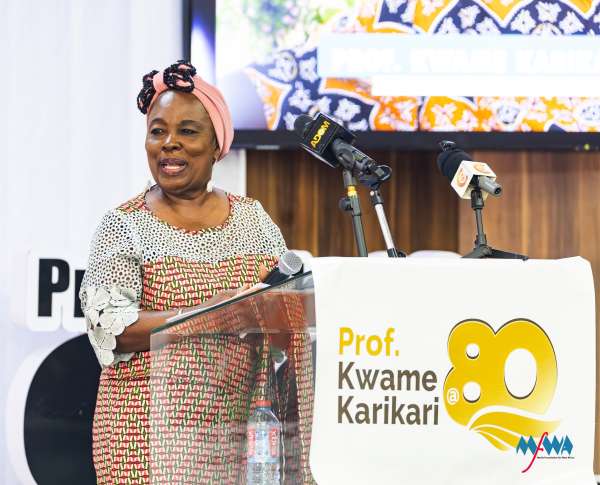
“Sixth, the setting up and running of the Media Foundation for West Africa; it is the proudest of all, for the simple and profound reason that he has had the fortune of finding a young man, Sulemana Braimah, who keeps it going and growing from strength to strength, relevance to relevance, respectability to respectability,” Prof. Takyiwaa Manuh said.
The seventh highlight of Prof. Karikari’s life is that many of the friends that he made through his work around the continent, have become family, thus availing him homes in most countries in Africa – from Nigeria to South Africa, through to Eritrea, as well as in most regions in Ghana, where among others Prof. Karikari has been adopted as a member of the Royal Family in Nandom.
The lecture was held under the theme: ‘Celebrating a life of commitment and service to free expression, democracy and social justice,’ and came off at the GNAT Hall in Accra on Thursday July 17, 2025. Among the long list of outstanding personalities who were in attendance were Prof. Umaru Pate of the University of Kashere, Nigeria, and Ghanaian legal luminary, Prof. Akilagpa Sawyerr.
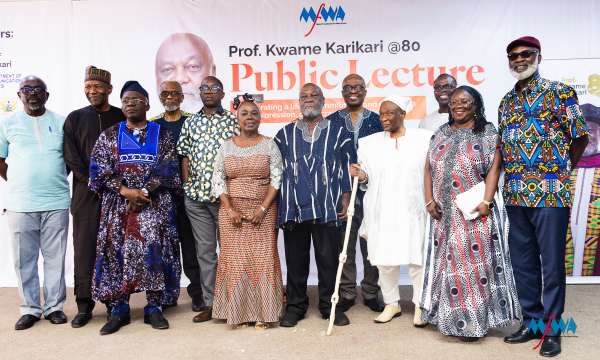
Also in attendance were Lawyer Goosie Tanoh, a Ghanaian legal practitioner and politician, Prof. Margaret Ivy Gyan, immediate past member of Ghana’s Council of State, Prof. Emmanuel Gyima-Boadi, political scientist and co-founder of Afrobarometer, Prof. Edmund Delle, overlord of the Nandom traditional area, and Prof. Akosua Adomako Ampofo, a Ghanaian academic. Others were Mr. Abdulai Diallo, former coordinator of the Norbert Zongo Press Center in Burkina Faso, Mr. George Sarpong, Executive Secretary of the National Media Commission and Dr. Emmanuel Akwetey, Executive Director of the Institute for Democratic Development Ghana (IDEG).
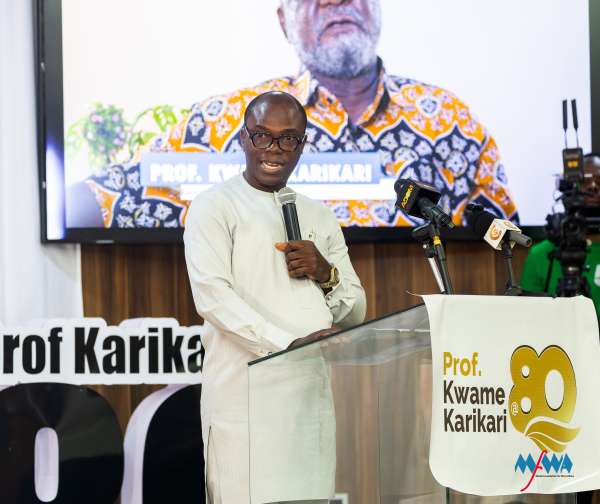
Mr. Sulemana Braimah, Executive Director of the MFWA, opened the lecture with a welcome address. “We are gathered here today, not only to learn and reflect through this lecture, but also pay glowing tribute to the lifetime of an extraordinary man who has contributed to the progress and development of Ghana, West Africa and Africa,” Mr. Braimah summed.
According to him, “Prof. Karikari’s work, mentorship and unwavering commitment to enhancing the progress of humanity, has positively impacted thousands, if not millions of lives and will continue to inspire generations.”
Prof. Audrey Gadzekpo, former Dean of the University of Ghana Department of Communication Studies, and a mentee of Prof. Karikari, paid glowing tribute to him for his transformational impact on media and journalism education in Africa. Under Prof’s leadership, she said, the Department of Communication Studies developed its first code of ethics.
And after retiring at 60, she added, Prof. Karikari has supported the growth of journalism programmes, helping to establish the Wisconsin University in Ghana, and contributing to the strategic plan that was used to establish Rwanda’s journalism school.
Celebrated Nigerian human rights lawyer, Femi Falana delivered the keynote address. “We are gathered here not merely to celebrate a long life, but to salute a life lived in unwavering commitment to the ideals of free expression, democratic accountability, and social justice. In celebrating Professor Karikari, we celebrate a man who has become a conscience of the African public sphere, a moral compass and a tireless defender of our collective liberties,” Lawyer Falana said.
According to him, Prof. Karikari has spent his life demonstrating that without the right to speak and to dissent, democracy becomes a shell.
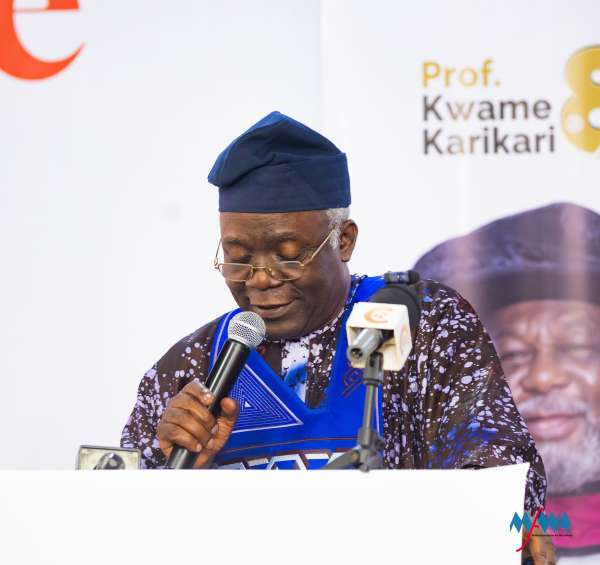
“Whether through media advocacy, civic education, or institutional reform, he has worked to make these ideals real in the lives of ordinary Africans. In a continent too often burdened by authoritarianism, impunity, and elite capture, his life has been a light in the darkness. His efforts also underscore the importance of resisting sectarian and partisan biases in journalism.”
Lawyer Falana described Prof. Karikari’s life as one that has left lasting impact that straddles both the past and the future of African democracy, civil and media rights.
“If this were merely a celebration of the past, we could end here. But this is also a call to the future. Free expression is still under threat in too many African countries. Democracy is increasingly under siege, manipulated by civilian autocrats and eroded by disinformation. Social justice remains elusive for millions struggling with poverty, displacement, and systemic exclusion.
The challenge now falls on us—the younger generation of lawyers, journalists, activists, scholars to take forward the ideals Professor Karikari has championed,” Lawyer Falana said.
An important high point of the lecture was an address by the celebrant, Prof. Karikari himself – after expressing appreciation for the honor done him, Prof. Karikari converted the occasion to one more teachable opportunity. “After it was announced that I had been appointed as a member of (Ghana’s) Constitutional Review Commission, an elderly man I know called and congratulated me. In response, I said (jokingly) that as for people like us, it is after the politicians have finished eating the meat that we are invited to pick the bones. But he stopped me, saying I should not say that. He then went on to mention some prominent names and reminded me that those persons, could have been appointed instead of me, and that they were not called to do this great service because it was thought that we those called were more befitting. This elderly man went on to admonish that money is not everything, and so I also admonish all of us here, money is not everything.”
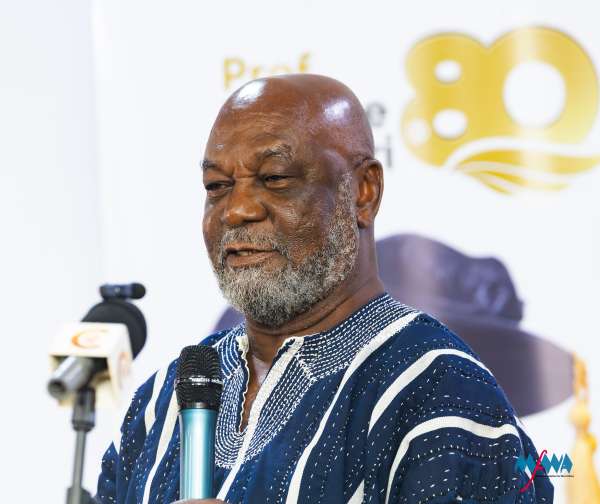
The anecdote was received with an ovation. As part of the lecture, a panel of peers and mentees of Prof. Karikari was convened and it discussed the towering legacy of Prof. Karikari.
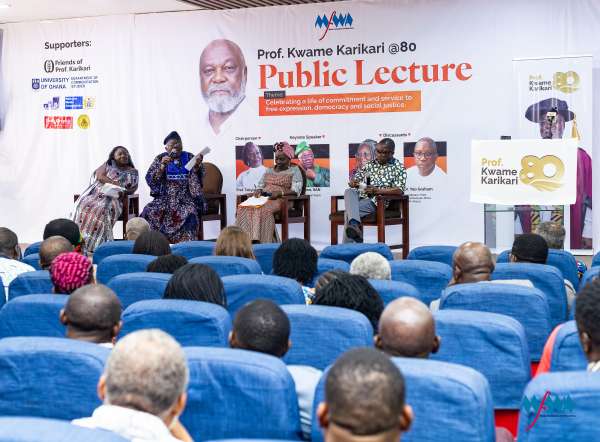
On July 18, 2025, the commemoration was crowned with a dinner at the University of Ghana’s Great Hall in honor of Prof. Karikari.
Click here to access an album of pictures from the Lecture, a tribute video from his friends, mentees, and family, and a recording of the Public Lecture.



